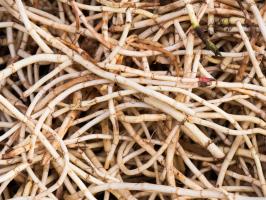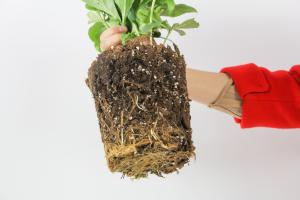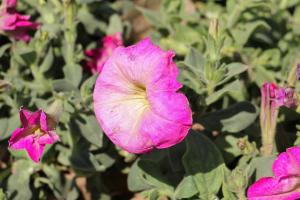Introduction
Pot plants, also known as potted plants, are a wonderful addition to any home or office space. They add color, life, and beauty to any environment. However, maintaining these plants can be a challenging task for beginners. One of the essential aspects of pot plant maintenance is feeding them. In this article, we will discuss what to feed pot plants and tips on providing them with adequate nutrients.
Fertilizers for Pot Plants
Feeding pot plants with fertilizers is essential for their healthy growth. There are two primary types of fertilizers available in the market - granular or liquid. Granular fertilizers are usually slow-releasing and can last several weeks. On the other hand, liquid fertilizers can provide a quick boost of nutrients to the plants. It is essential to choose the right type of fertilizer depending on the plant's needs.
Nutrient Requirements for Pot Plants
Pot plants require three primary nutrients for healthy growth - nitrogen, phosphorus, and potassium. Nitrogen is essential for leafy growth, while phosphorus promotes flower and root development. Potassium helps in improving the plant's overall strength and resistance to diseases. It is crucial to provide these nutrients in the right ratios to ensure the plant's growth and productivity.
Organic and Inorganic Fertilizers
Organic fertilizers are derived from natural sources like manure, compost, and other organic matter. They are an excellent choice for gardeners who prefer natural products. Organic fertilizers can provide a slow-release of nutrients to pot plants and improve the soil structure. On the other hand, inorganic fertilizers are chemically synthesized and provide a quick boost of nutrients to the plants. They are an excellent choice for gardeners who want fast results.
Feeding Schedule for Pot Plants
Feeding pot plants on a regular schedule is essential for their healthy growth. It is recommended to feed them every two to four weeks during the growing season, which is usually from spring to fall. It is essential to follow the manufacturer's instructions while using fertilizers to avoid overfeeding, which can damage the plant's roots. In the winter season, when pot plants are dormant, reduce the feeding frequency to once every eight weeks.
Additional Tips for Feeding Pot Plants
Here are some additional tips that can help in feeding pot plants:
Water the plant thoroughly before feeding to avoid fertilizer burn.
Avoid using too much fertilizer, as it can damage the plant's roots.
Choose a well-balanced fertilizer that provides all the necessary nutrients.
Apply the fertilizer evenly to the soil and avoid getting it on the leaves or stem.
Use a watering can or a measuring spoon to ensure the right amount of fertilizer is given to the plant.
Conclusion
Feeding pot plants is an essential aspect of their maintenance. Choosing the right type of fertilizer and providing adequate nutrients can ensure healthy growth and productivity. Follow the feeding schedule and additional tips discussed in this article to ensure optimal growth of your pot plants. Happy gardening!

 how many times do yo...
how many times do yo... how many planted tre...
how many planted tre... how many pine trees ...
how many pine trees ... how many pecan trees...
how many pecan trees... how many plants comp...
how many plants comp... how many plants can ...
how many plants can ... how many plants and ...
how many plants and ... how many pepper plan...
how many pepper plan...

































